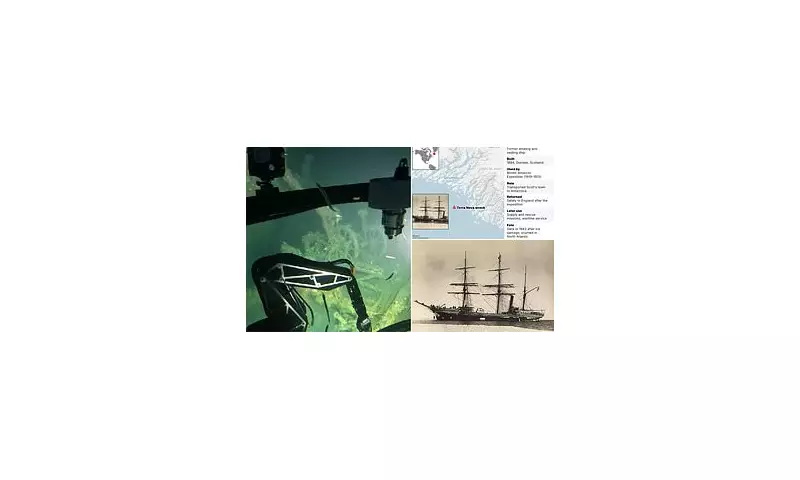
In an extraordinary discovery that has thrilled maritime historians and exploration enthusiasts, the final resting place of Captain Robert Falcon Scott's legendary ship, the Terra Nova, has been located on the ocean floor after vanishing without a trace eight decades ago.
The vessel, which achieved immortality by carrying Scott and his team on their ill-fated 1910-1913 British Antarctic Expedition, was found in stunning condition 1,000 feet beneath the surface of the Greenland Sea. The breakthrough came when a team from the Schmidt Ocean Institute, aboard the research vessel Falkor, identified the wreck using state-of-the-art sonar technology.
A Moment Frozen in Time
Remarkable sonar images reveal the 57-metre long ship is largely intact, resting upright on the seabed. Its distinctive funnel and mast remain clearly visible, creating a ghostly silhouette against the ocean floor. The discovery brings closure to one of maritime history's most enduring mysteries and provides a tangible connection to Britain's heroic age of Antarctic exploration.
The Terra Nova's Dramatic History
Built in 1884 as a whaling ship, the Terra Nova was already a veteran of Arctic waters when selected for Scott's expedition. After its historic Antarctic journey, the vessel returned to its former life as a working ship. Its final chapter began in 1943 when it suffered critical damage while transporting supplies during World War II. To prevent sinking, the crew deliberately ran it aground off the coast of Greenland, but the wreck subsequently slipped beneath the waves and disappeared from recorded history.
Modern Technology Solves an Ancient Mystery
The discovery team, led by marine technician and historian Brian Kelly, faced enormous challenges in locating the wreck. "The sea is a very big place," Kelly noted, emphasising that even with modern technology, finding a specific wreck remains extraordinarily difficult. The breakthrough came when the team detected an unidentified object during a routine mapping operation, which subsequent investigation confirmed as the long-lost Terra Nova.
This discovery not only solves an 80-year-old mystery but also preserves an important piece of British exploration heritage. The Terra Nova stands as a permanent memorial to Captain Scott's bravery and the spirit of discovery that defined an era of polar exploration.





